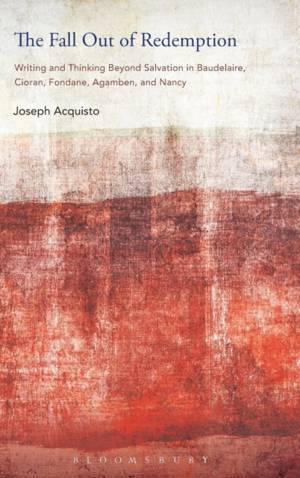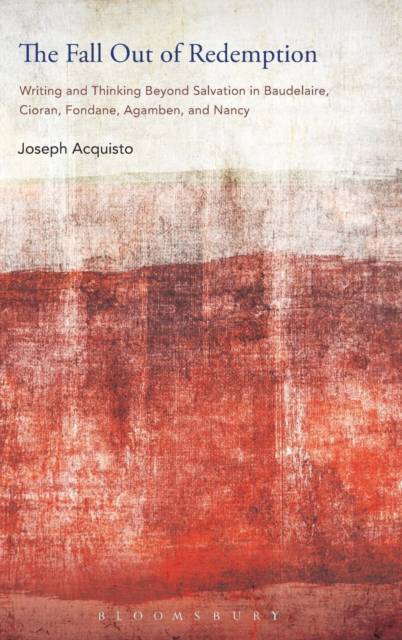
- Afhalen na 1 uur in een winkel met voorraad
- Gratis thuislevering in België vanaf € 30
- Ruim aanbod met 7 miljoen producten
- Afhalen na 1 uur in een winkel met voorraad
- Gratis thuislevering in België vanaf € 30
- Ruim aanbod met 7 miljoen producten
Zoeken
The Fall Out of Redemption
Writing and Thinking Beyond Salvation in Baudelaire, Cioran, Fondane, Agamben, and Nancy
Joseph Acquisto
Hardcover | Engels
€ 296,95
+ 593 punten
Uitvoering
Omschrijving
Joseph Acquisto examines literary writers and critical theorists who employ theological frameworks, but who divorce that framework from questions of belief and thereby remove the doctrine of salvation from their considerations. Acquisto claims that Baudelaire inaugurates a new kind of amodern modernity by canceling the notion of salvation in his writing while also refusing to embrace any of its secular equivalents, such as historical progress or redemption through art.
Through a series of "interhistorical" readings that put literary and critical writers from the last 150 years in dialogue, Acquisto shows how these authors struggle to articulate both the metaphysical and esthetic consequences of attempting to move beyond a logic of salvation. Putting these writers into dialogue with Baudelaire highlights the way both literary and critical approaches attempt to articulate a third option between theism and atheism that also steers clear of political utopianism and Nietzschean estheticism. In the concluding section, Acquisto expands metaphysical and esthetic concerns to account also for the ethics inherent in the refusal of the logic of salvation, an ethics which emerges from, rather than seeking to redeem or cancel, a certain kind of nihilism.Specificaties
Betrokkenen
- Auteur(s):
- Uitgeverij:
Inhoud
- Aantal bladzijden:
- 232
- Taal:
- Engels
Eigenschappen
- Productcode (EAN):
- 9781628926521
- Verschijningsdatum:
- 23/04/2015
- Uitvoering:
- Hardcover
- Formaat:
- Genaaid
- Afmetingen:
- 152 mm x 229 mm
- Gewicht:
- 480 g

Alleen bij Standaard Boekhandel
+ 593 punten op je klantenkaart van Standaard Boekhandel
Beoordelingen
We publiceren alleen reviews die voldoen aan de voorwaarden voor reviews. Bekijk onze voorwaarden voor reviews.







